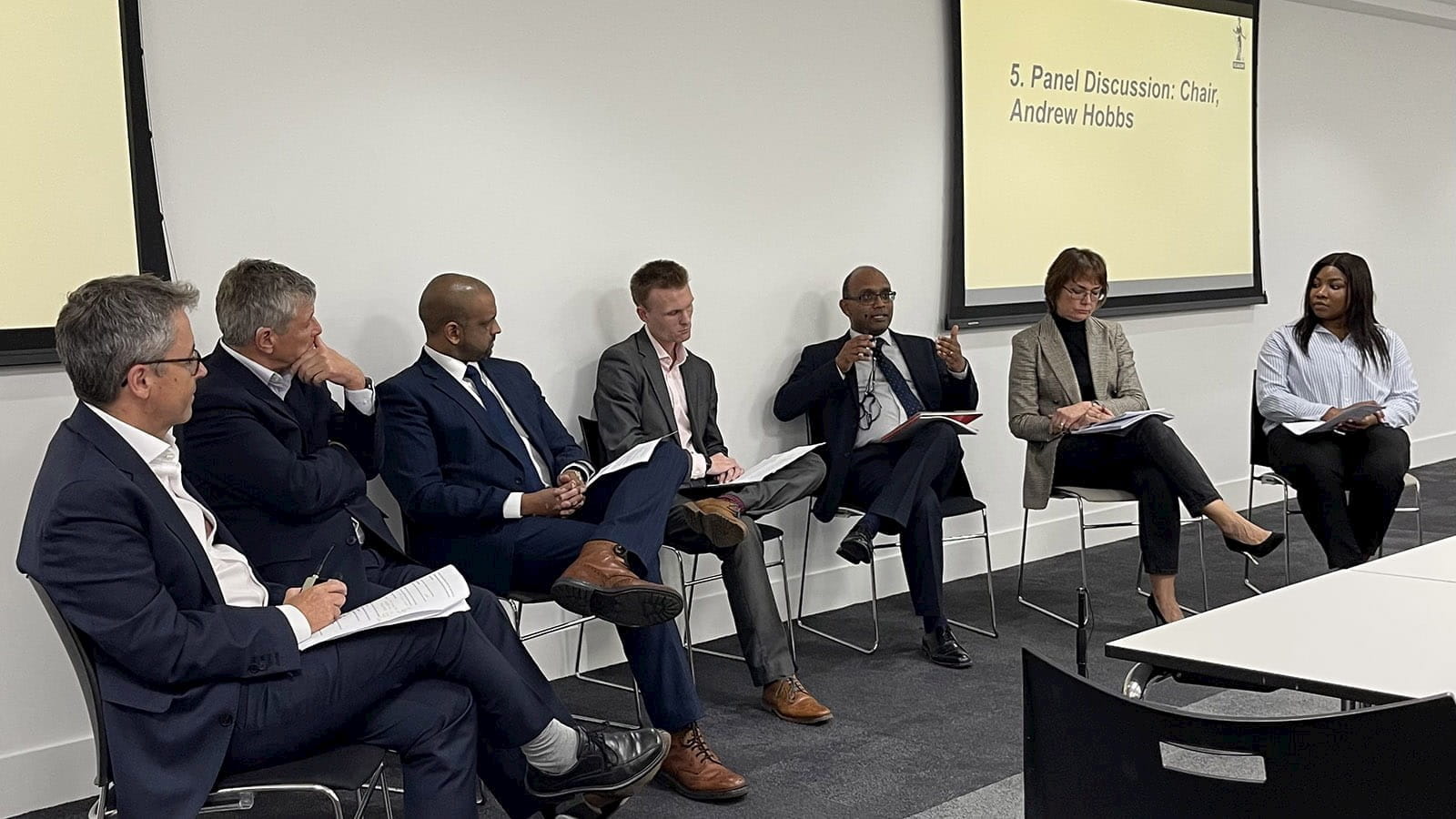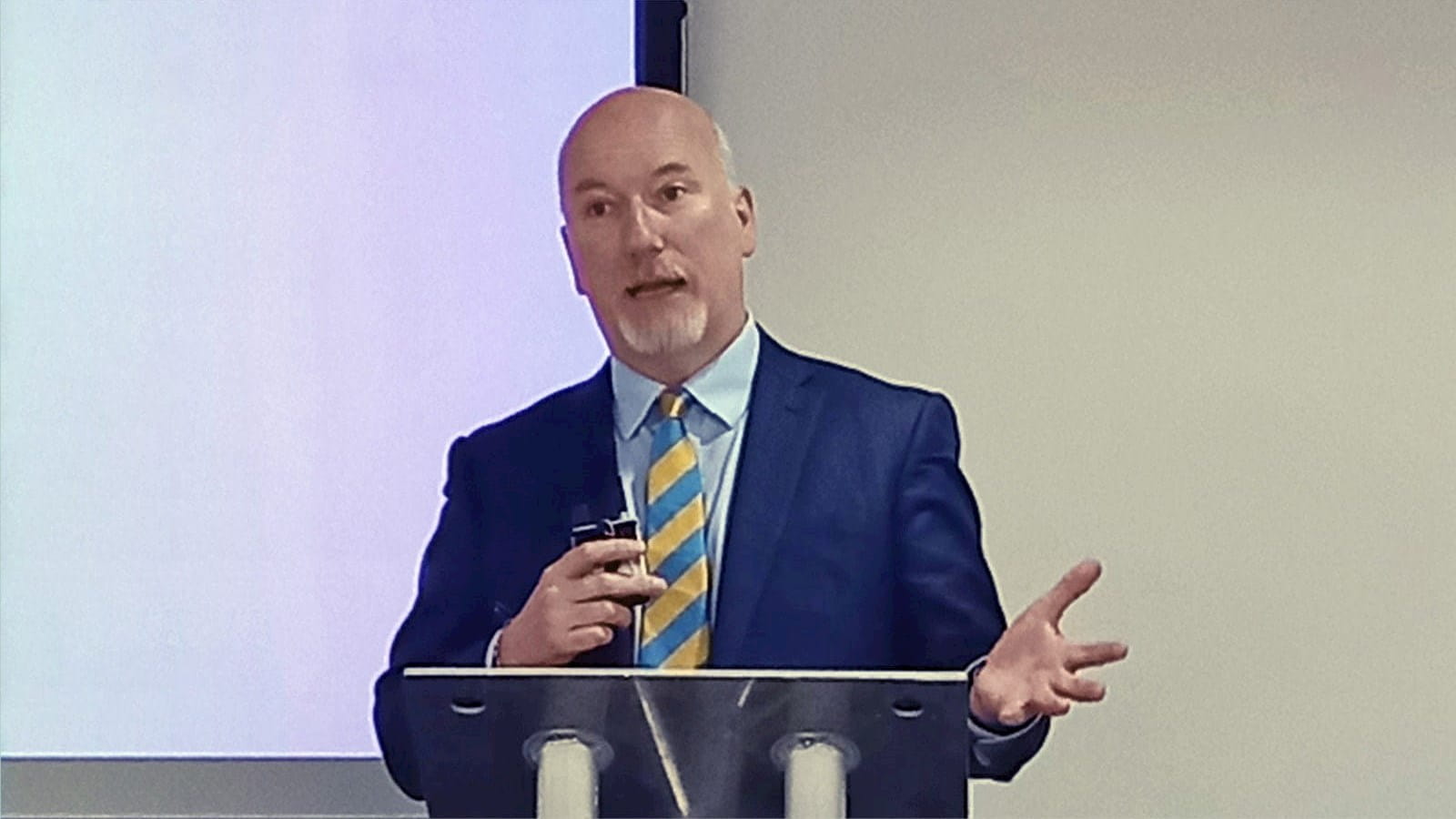
Why do some companies succeed while others fail, and what is the impact of corporate failure on diverse stakeholders? These questions were tackled by ICAEW members and academics at a recent ICAEW round table exploring business resilience and best practice for corporate governance.
The pivotal role of effective reporting and the importance of transparent information disclosure in communicating resilience to a spectrum of stakeholders emerged as strong themes. The event, held on 3 October in collaboration with Leeds University Business School, also highlighted early signs of potential failure and how turning to academic research could steer businesses toward effective and sustainable solutions.
Peter van Veen, ICAEW’s Director for Corporate Governance and Stewardship, said understanding the causes of sudden and unexpected corporate failure was essential to restoring trust in audit and corporate governance. “At ICAEW, we are committed to playing our part in restoring trust, including funding research into the area of why companies fail. We want to identify not just the causes of corporate failure, but also practical solutions.”

How to make it through bad times
Businesses participating in the round table pinpointed three core differentiators that set companies apart during challenging periods.
First, a deep understanding of their value proposition and revenue streams forms a solid foundation for successful businesses. This enables them to adapt, diversify and maintain stakeholder trust. Key questions revolve around what the business excels at compared with competitors.
Effective communication with stakeholders, particularly during turbulent times, emerged as a crucial differentiator. In particular, the timely and transparent delivery of challenges to employees, customers and suppliers is imperative for a business’s survival. In an era dominated by social media, companies must be mindful that they may not have complete control over the messaging.
A strong leadership team and disciplined internal professionals also play a big part when financial constraints loom. Robust processes nurtured during good times become pillars of support during adversity. These differentiators form the bedrock of resilience and success during challenging periods.
Effective risk management
Risk identification and management has a particularly important role to play in reducing the occurrence of ‘surprise’ failures. Participants highlighted nine factors as crucial in effective risk management:
- Board diversity: diverse boards leverage a broad range of skills to navigate crises through scenario planning and honest self assessment.
- Agility: those successfully able to navigate challenges underscored the need for swift adaptation, teamwork, customer focus, empowerment and continuous learning.
- Cultural context: understanding how culture influences responses helps identify sources of strength and challenge.
- Identifying hubris and fear: recognising euphoria or fear based on past trends is vital to avoid clouded judgement.
- Seeking good advice: having aligned advisers early on is pivotal in navigating difficulties.
- Scaling up: rapidly scaling solutions can address broader challenges during crises.
- Transparency: timely and candid communication with stakeholders helps to alleviate pressures.
- Funding stickiness: awareness of finance sources’ rapid withdrawal is crucial for contingency planning.
- Role of regulators: evaluation of regulatory impact highlighted the need for balance in internal control and accountability to avoid adverse consequences.
Actionable investigations
Regulators were criticised by participants for their reactive rather than pre-emptive actions. The discussion advocated for a balanced approach, focusing not on more regulations, but a proactive balance between measurable characteristics and early warning systems to enhance survival prospects.
The Financial Reporting Council’s (FRC’s) recently proposed revisions to the Corporate Governance Code feature among the actions initiated by the UK government to reduce the risks and impact of sudden corporate failures. ICAEW’s recent response to the FRC’s consultation on the Code revisions stressed that the future of corporate governance is as much about nurturing good behaviours as it is about preventing corporate failures.
But while the revisions to the Code are an important step towards stronger corporate governance, they are not the end destination. Investigation into the causes of unexpected failure has been insufficient and more needs to be done to identify potential solutions, participants heard.
ICAEW Director, Policy, John Boulton, comments: “The discussion highlighted practical measures that businesses and advisers could implement now to boost resilience. What we will be doing now is to work with academics to explore the evidence about what works and to refine our findings through consultation with members. We hope we can provide both practical insights of immediate use to businesses and input to policy development in this area.”
The round table acted as the first step in a broader investigation, funded by ICAEW’s Charitable Trusts and working with academics, to examine these factors in more detail and identify practical measures to enhance business resilience.
Join the Corporate Governance Community
The latest news and developments in corporate governance, to help you in your role as a board member, NED or corporate governance professional. Membership is free and open to everyone.




